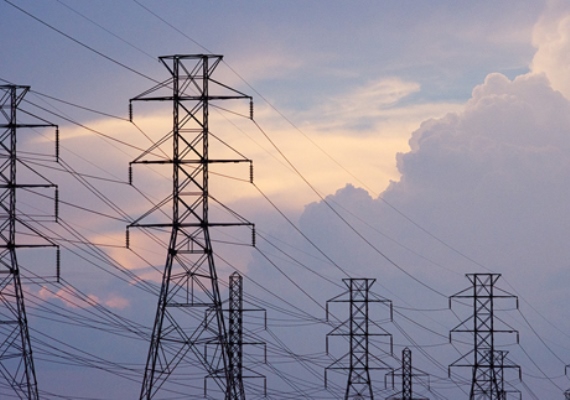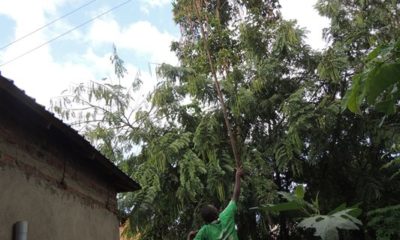News
Realising Benefits of Uganda’s Abundant Hydro Power is a Political Decision

Electricity lines
This week, the Electricity Regulatory Authority (ERA) held a public hearing on a planned modification of distribution and supply license that was filed by the power distributor Umeme Ltd. This newspaper also understands that plans are afoot to renew the distribution licence for Umeme, despite numerous calls including from Parliament to review and possibly renegotiate the distribution contract for purposes of lowering the cost of power in Uganda.
The government has spent an incredible amount of money, most of which is borrowed, to build hydro power dams over the past decade. And the government urged us to tighten our belts in the hope that we would pay lower tariffs, once the power is realised.
Since some of the dams have started coming online, power supply has greatly increased to now 1,177 MW as of March 2019. Unfortunately, power demand is not rising fast enough to match supply. Data from the power industry shows that peak demand remains very low at around 680MW.
Industrialists are also complaining that they are producing far below their capacity, due to high tariffs.
The Oboth Oboth Parliamentary report on Umeme and other well-informed energy experts have revealed that power tariffs were and remain a major hindrance to increasing demand and therefore the benefits accruing from electricity. Despite overwhelming evidence and testimonies from the general public and from manufacturers that Uganda’s power is too costly, the government has decided to keep tariffs superficiary high, arguing that demand is low.
Many argue that power demand is low because of high tariffs. There is no clear justification to maintain high tariffs of power when the country is experiencing excess output.
The lack of affordable electricity, is negatively impacting on our economy, the environment and generally the government’s overall economic ambitions of transforming the country from a subsistence to an industrialized nation.
The prevailing levels of high youth unemployment, illustrated by the mass exodus of young and educated people seeking greener pastures in Arab countries, is a rude reminder on how the economy is failing to create jobs for young people. Affordable electricity would have been a catalyst for empowering young people to engage in processing and other value addition factories.
From the environmental perspective, Uganda continues to lose an incredible amount of forest cover in search of charcoal and firewood. The direct consequence of this catastrophe is the negative impact to agricultural productivity arising from reduced rainfall, and climate variability.
It is our considered view that the president has the power to change the sad state of affairs arising from high power tariffs. The president needs to root out corruption in the process of developing power contracts.
He also needs to come out in support of the private sector to invest in the agricultural processing so as to create demand for electricity but also create employment for majority of the young people.
Comments


























